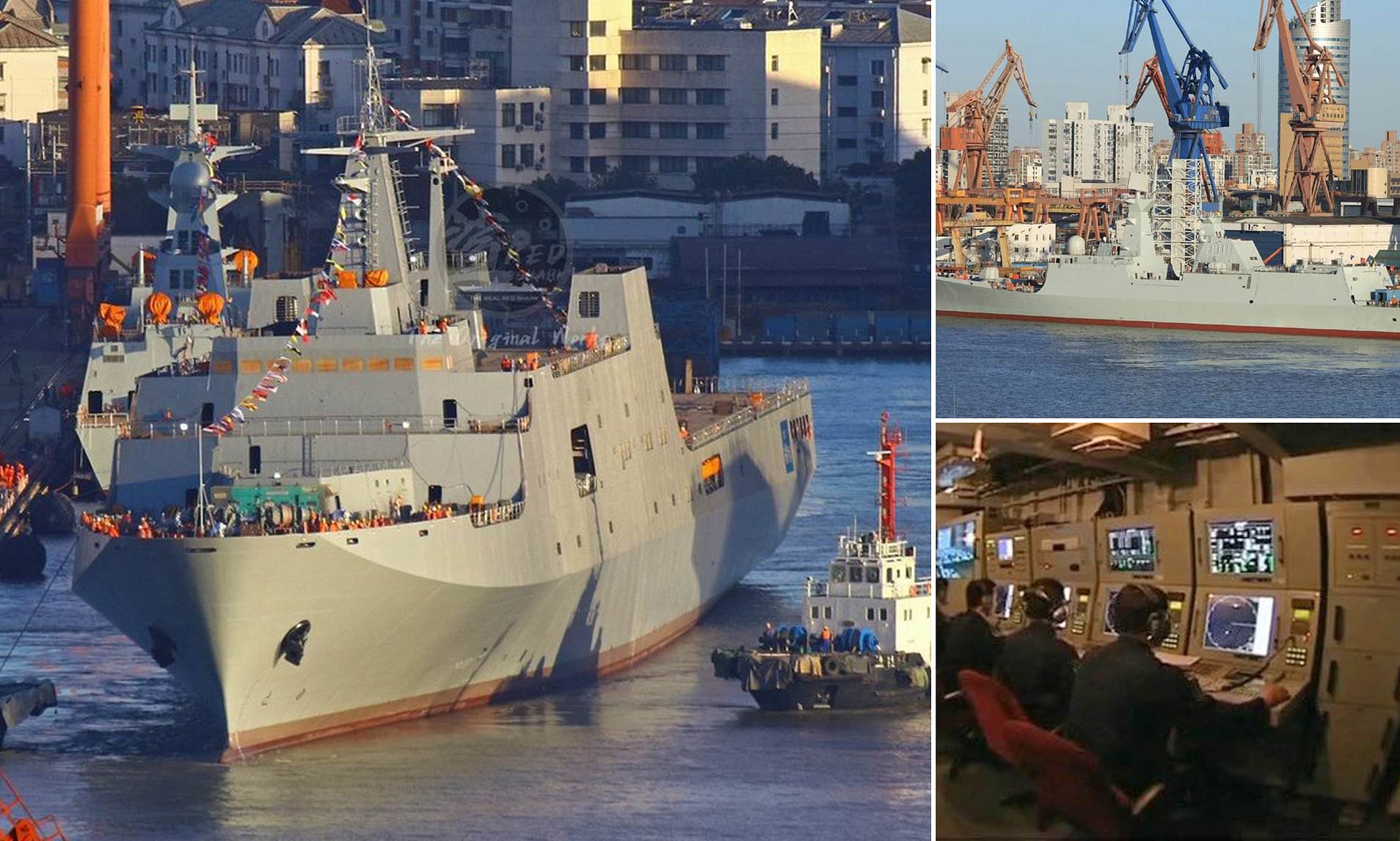China’s New Maritime Strategy: The Push Toward Taiwan
Reports suggest that China is ramping up its military capabilities with the construction of large barges inspired by World War II’s iconic Mulberry harbors, designed for rapid deployment during amphibious invasions. As tensions continue to mount between China and Taiwan, these developments have drawn significant attention from defense analysts and media outlets alike.
Inspiration from History: The “D-Day Style” Barges
According to various media reports, including *Naval News* and *The Telegraph*, China is reportedly building at least three large barges at the Guangzhou Shipyard, with some estimates suggesting the total number could exceed five. These barges, each measuring over 390 feet, are modeled after the portable harbors used during the Allied invasion of Normandy in 1944. The original Mulberry harbors were crucial for facilitating logistics and support for ground forces, and China appears to be drawing on this historical precedent to enhance its military capabilities.
Strategic Importance of the Barges
The new barges are designed to provide access to coastal areas that may be difficult to reach through traditional means. This includes beaches and rocky terrains that have been potential obstacles for military invasions in the past. Analysts argue that the ability to land troops and heavy equipment at previously unsuitable locations could significantly change the dynamics of a potential military operation against Taiwan.
Emma Salisbury, a research fellow at the Council on Geostrategy, explains, “Any invasion of Taiwan from the mainland would require a large number of ships to transport personnel and equipment across the strait quickly, particularly land assets like armored vehicles.” The construction of these barges may signal that China is preparing for various operational scenarios in the Indo-Pacific region.
Tensions Rise Between China and Taiwan
This military development comes at a time of increasing tensions between China and Taiwan. The self-governing island has long been a point of contention, with China steadfastly viewing Taiwan as a breakaway province rather than an independent nation. In a recent televised message, Chinese President Xi Jinping reiterated his belief that “reunification” with Taiwan is an inevitable outcome. “The people on both sides of the Taiwan Strait are one family,” he stated, underscoring a narrative that fuels nationalism and seeks to unify the region under Beijing’s control.
U.S. Response and Regional Security
The Biden administration has been vocal about countering Chinese influence in the Indo-Pacific region. However, as strategic developments unfold, the repercussions extend beyond mere rhetoric. The construction of these barges may not only serve as preparation for a potential military campaign but also serve as a psychological tool to deter Taiwanese resistance and reassure allies of China’s military capabilities.
Fox News Digital reached out to the U.S. Department of Defense, the Chinese Embassy in Washington, D.C., and the Taipei Economic and Cultural Representative Office for comments regarding the potential implications of these maritime projects. However, as of now, no responses have been received from these entities.
Implications for Cross-Strait Relations
The developments surrounding the construction of these barges align with an overarching trend of military escalation and strategic posturing in the area. They highlight the increasing volatility of cross-strait relations, where military readiness could dictate the balance of power. While it’s unclear whether these preparations may lead to direct action, the mere existence of such capabilities could embolden China and complicate regional security dynamics.
Conclusion
As China progresses with its maritime strategy and military readiness, including the construction of the so-called “D-Day style” barges, the implications for Taiwan and the broader Indo-Pacific region remain profound. The ongoing developments offer a glimpse into the contentious future of cross-strait relations, with the potential for conflict lingering in the background. It remains imperative for the international community to monitor these advancements and their possible repercussions diligently.
